Fiat Tipo Wagon VS Peugeot 408 – Specs, Efficiency & Price Comparison
Which model is the better choice – the Fiat Tipo Wagon or the Peugeot 408? We compare performance (130 HP vs 225 HP), boot capacity (550 L vs 536 L), efficiency (4.70 L vs 15.10 kWh1.40 L), and of course, the price (21000 £ vs 34300 £).
Find out now which car fits your needs better!
The Fiat Tipo Wagon (Estate) is powered by a Petrol MHEV or Diesel engine and comes with a Automatic or Manuel transmission. In comparison, the Peugeot 408 (SUV) features a Plugin Hybrid, Electric or Petrol MHEV engine and a Automatic gearbox.
When it comes to boot capacity, the Fiat Tipo Wagon offers 550 L, while the Peugeot 408 provides 536 L – depending on what matters most to you. If you’re looking for more power, you’ll need to decide whether the 130 HP of the Fiat Tipo Wagon or the 225 HP of the Peugeot 408 suits your needs better.
There are also differences in efficiency: 4.70 L vs 15.10 kWh1.40 L. In terms of price, the Fiat Tipo Wagon starts at 21000 £, while the Peugeot 408 is available from 34300 £.
Compare all the key specs now and find out which model fits your lifestyle best!
Fiat Tipo Wagon
The Fiat Tipo Station Wagon offers a spacious and practical solution for families seeking value without sacrificing comfort. Its sleek design and modern interior features create a pleasant driving experience, complemented by a range of user-friendly technology. On the road, the Tipo Estate provides a smooth drive, making it an ideal companion for both urban and longer journeys.
details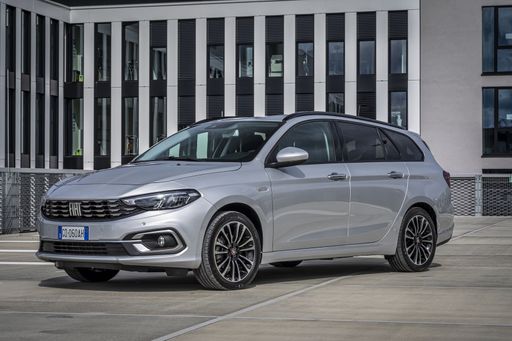 @ media.stellantis.com
@ media.stellantis.com
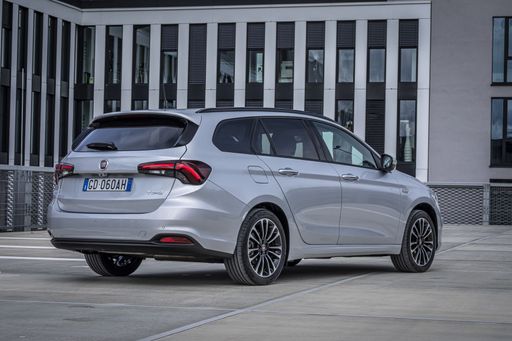 @ media.stellantis.com
@ media.stellantis.com
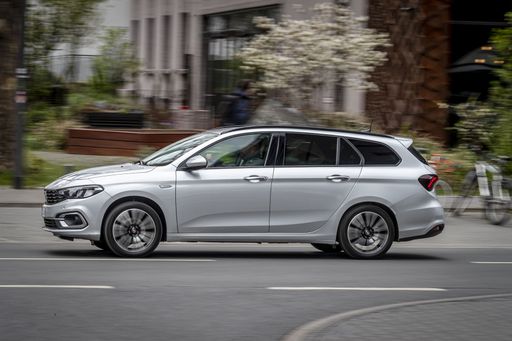 @ media.stellantis.com
@ media.stellantis.com
Peugeot 408
The Peugeot 408 captivates with its sleek and dynamic design, setting it apart in the competitive crossover market. Its interior offers a perfect blend of comfort and cutting-edge technology, creating an enjoyable driving experience. The model's efficient performance and modern features make it a compelling choice for those seeking both style and functionality in their vehicles.
details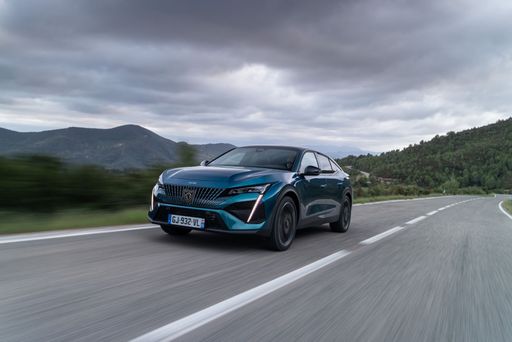 @ media.stellantis.com
@ media.stellantis.com
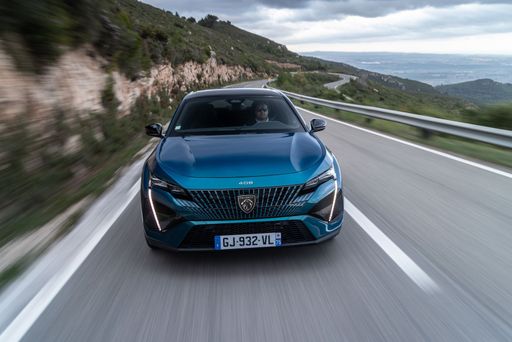 @ media.stellantis.com
@ media.stellantis.com
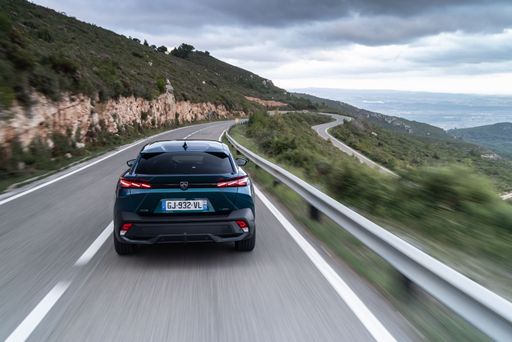 @ media.stellantis.com
@ media.stellantis.com
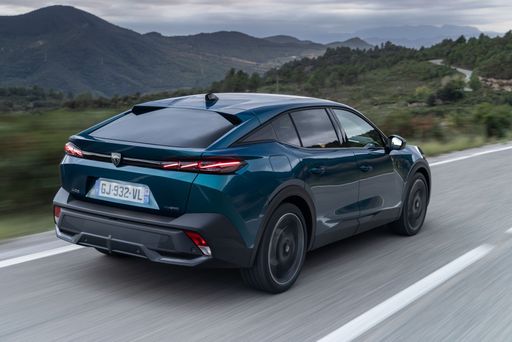 @ media.stellantis.com
@ media.stellantis.com
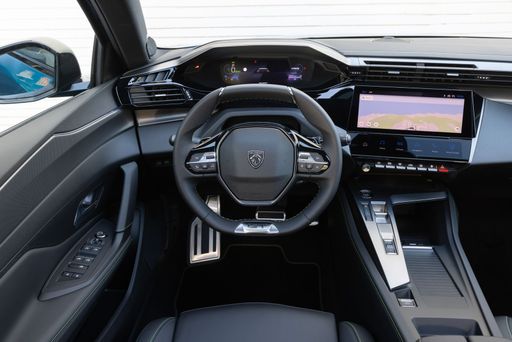 @ media.stellantis.com
@ media.stellantis.com

|

|
|
|
|
Costs and Consumption |
|
|---|---|
|
Price
21000 - 27000 £
|
Price
34300 - 44400 £
|
|
Consumption L/100km
4.7 - 5.4 L
|
Consumption L/100km
1.4 - 5.1 L
|
|
Consumption kWh/100km
-
|
Consumption kWh/100km
15.10 kWh
|
|
Electric Range
-
|
Electric Range
63 - 453 km
|
|
Battery Capacity
-
|
Battery Capacity
11.3 - 58.2 kWh
|
|
co2
122 - 125 g/km
|
co2
0 - 114 g/km
|
|
Fuel tank capacity
50 L
|
Fuel tank capacity
40 - 52 L
|
Dimensions and Body |
|
|---|---|
|
Body Type
Estate
|
Body Type
SUV
|
|
Seats
5
|
Seats
5
|
|
Doors
5
|
Doors
5
|
|
Curb weight
1455 - 1470 kg
|
Curb weight
1544 - 1879 kg
|
|
Trunk capacity
550 L
|
Trunk capacity
471 - 536 L
|
|
Length
4571 mm
|
Length
4687 mm
|
|
Width
1792 mm
|
Width
1848 mm
|
|
Height
1514 mm
|
Height
1478 mm
|
|
Payload
475 kg
|
Payload
371 - 456 kg
|
Engine and Performance |
|
|---|---|
|
Engine Type
Petrol MHEV, Diesel
|
Engine Type
Plugin Hybrid, Electric, Petrol MHEV
|
|
Transmission
Automatic, Manuel
|
Transmission
Automatic
|
|
Transmission Detail
Dual-Clutch Automatic, Manual Gearbox
|
Transmission Detail
Automatikgetriebe, Automat. Schaltgetriebe (Doppelkupplung)
|
|
Drive Type
Front-Wheel Drive
|
Drive Type
Front-Wheel Drive
|
|
Power HP
130 HP
|
Power HP
145 - 225 HP
|
|
Acceleration 0-100km/h
9.1 - 10.1 s
|
Acceleration 0-100km/h
7.2 - 9.4 s
|
|
Max Speed
206 - 207 km/h
|
Max Speed
160 - 233 km/h
|
|
Torque
240 - 320 Nm
|
Torque
230 - 360 Nm
|
|
Number of Cylinders
4
|
Number of Cylinders
4
|
|
Power kW
96 kW
|
Power kW
107 - 165 kW
|
|
Engine capacity
1469 - 1598 cm3
|
Engine capacity
1199 - 1598 cm3
|
General |
|
|---|---|
|
Model Year
2024
|
Model Year
2024 - 2025
|
|
CO2 Efficiency Class
D
|
CO2 Efficiency Class
B, A, C
|
|
Brand
Fiat
|
Brand
Peugeot
|
Fiat Tipo Wagon
Introduction to the Fiat Tipo Station Wagon
The Fiat Tipo Station Wagon has long been a staple in the automotive world, celebrated for its practical design, spacious interior, and affordability. The 2024 model continues this tradition, offering impressive updates in technology and performance, making it a significant contender in the compact estate car market. Here, we take a closer look at what makes the Fiat Tipo Kombi a standout choice.
Engine and Performance
Under the bonnet, the Fiat Tipo Station Wagon showcases its versatility with a choice of powertrains. Its offerings include a 1.5 GSE Hybrid with a mild-hybrid system that enhances fuel efficiency and provides a responsive driving experience. This engine choice delivers 130 PS and achieves a commendable fuel consumption rate of 5.4 L/100km.
For diesel enthusiasts, the 1.6 MultiJet engine provides a robust performance with the same 130 PS but boasts an even lower fuel consumption of 4.7 L/100km. Both engine variants offer a front-wheel drive system which is complemented by either a dual-clutch automatic transmission or a traditional manual gearbox, ensuring a pleasurable driving experience tailored to individual preferences.
Advanced Technology and Innovations
The 2024 Fiat Tipo Station Wagon is equipped with a suite of modern technologies, enhancing both safety and convenience. The model features an advanced infotainment system that integrates seamlessly with smartphones, offering navigation, media, and communication tools via a sleek and intuitive touchscreen interface.
On the safety front, the Tipo Station Wagon is equipped with various driver assistance systems, including adaptive cruise control and lane-keeping assist, ensuring both comfort and security on the road. These innovations reflect Fiat's commitment to merging safety with cutting-edge technology.
Design and Comfort
From a design perspective, the Fiat Tipo Station Wagon maintains a sleek and modern aesthetic, characterised by clean lines and a distinctive front grille that conveys confidence. The vehicle's dimensions (4571 mm in length, 1792 mm in width, and 1514 mm in height) provide ample space for passengers and gear, while a generous boot offers 550 litres of cargo capacity.
Inside, the Tipo Station Wagon is designed with comfort in mind, accommodating five passengers comfortably. The interior cabin is spacious, with quality materials and ergonomic seating ensuring that long journeys are undertaken in comfort.
Efficiency and Environmental Considerations
Efficiency is at the core of the Fiat Tipo Station Wagons design, as evidenced by its low fuel consumption figures and CO2 emissions ranging between 122 and 125 g/km, securing a CO2 efficiency class of D. This makes the vehicle an environmentally conscious choice without sacrificing performance or convenience.
Conclusion
For those in search of a reliable, spacious, and technologically advanced vehicle, the Fiat Tipo Station Wagon stands out as an excellent option. Its combination of performance, efficiency, and modern technology, all wrapped in a stylish design, ensures that it remains a top choice for 2024 and beyond.
Peugeot 408
The New Lion on the Block: The Peugeot 408
As Peugeot continues to innovate within the SUV segment, the latest iteration of the Peugeot 408 sets new standards in technology, efficiency, and design. With its cutting-edge engineering and innovative features, the Peugeot 408 is more than just a stylish SUV—it's a marvel of modern automotive technology. This article dives into the technical details and innovations that make the Peugeot 408 a highly compelling choice for consumers in the market for a new vehicle.
A Glimpse into the Engine Bay: Performance and Efficiency
The Peugeot 408 comes with a diverse range of powertrains that blend performance and fuel efficiency. Featuring a selection of petrol mild-hybrid, petrol, and plug-in hybrid options, the 408 caters to a variety of driving preferences. The engines have a power output ranging from 131 to 225 PS, ensuring that there's a version suited to both city commutes and highway cruising.
Fuel economy is a significant focus, with consumption figures spanning from an impressive 1.5 L/100km for the plug-in hybrid models to a moderate 6.1 L/100km for the traditional petrol engines. Additionally, the plug-in hybrid versions boast an electric range of up to 55 kilometres, ideal for reducing emissions during shorter journeys.
Ultimate Comfort and Technology in the Cockpit
Peugeot excels in creating interiors that provide both comfort and cutting-edge technology. The 408 doesn't disappoint in this regard. It offers a spacious cabin, accommodating up to five passengers, with high-quality materials and ergonomic designs that enhance the driving experience.
The infotainment system in the Peugeot 408 is state-of-the-art, featuring a responsive touchscreen interface, premium sound options, and seamless connectivity with smartphones. Advanced driver-assistance systems such as adaptive cruise control, lane-keeping assist, and automated emergency braking ensure that journeys are not only comfortable but also safe.
Design Meets Function: Exterior and Practicality
In the realm of exterior design, Peugeot has delivered a striking silhouette with aerodynamic lines and a robust SUV stance. Measuring 4687 mm in length, 1848 mm in width, and 1478 mm in height, the 408 boasts a dynamic presence on the road without compromising on practicality.
Practicality is further enhanced by a generous boot space that ranges from 471 to 536 litres, depending on the model, making it perfect for family trips or weekend getaways. A high payload capacity and thoughtfully designed storage solutions ensure that the Peugeot 408 remains versatile, able to adapt to various lifestyle needs.
Environmental Responsibility and Sustainable Driving
With a keen eye on sustainability, the Peugeot 408 offers an impressive CO2 efficiency rating. The plug-in hybrid versions, in particular, present a substantial reduction in carbon emissions, operating at as low as 33 g/km. This makes the 408 a viable option for environmentally conscious consumers seeking to minimise their carbon footprint.
The automaker's commitment to sustainability does not end at emissions. The materials used in the 408's construction are carefully selected to promote durability and recyclability, ensuring that the vehicle maintains a lower impact on the environment throughout its lifecycle.
Conclusion: The Perfect Blend of Innovation and Tradition
The Peugeot 408 is a remarkable illustration of Peugeot's ability to blend traditional automotive values with the latest technological advancements. Its innovative powertrains, luxurious interiors, and forward-thinking design make it a formidable contender in the competitive SUV market. Whether you prioritise fuel economy, driving performance, or cutting-edge technology, the Peugeot 408 is poised to meet and exceed expectations. As Peugeot advances into the future, the 408 leads the charge as a testament to the brand's relentless pursuit of excellence.
The prices and data displayed are estimates based on German list prices and may vary by country. This information is not legally binding.
